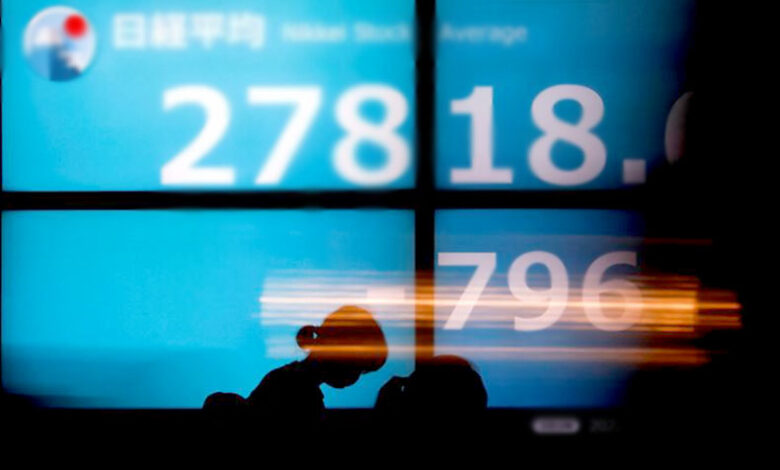Asian equities are down on rate hike fears, while the Japanese currency is at 32-year lows.

Singapore The yen sank to fresh 32-year lows on Friday, with markets on high alert for any indication of intervention, as the possibility of fast interest rate hikes from the Federal Reserve dampened investor sentiment. Asian shares also fell on Friday.
The benchmark 10-year Treasury yields in the United States reached new 14-year highs, which hurt the stock market and brought down gold prices.
Following a brief bounce following Liz Truss’ departure as British prime minister, the pound sterling started to decline.
With the Eurostoxx 50 futures down 0.92%, the German DAX futures down 1.04%, and the FTSE futures down 0.47%, European stock futures suggested that equities were likely to fall.
The largest Asia-Pacific share index outside of Japan, MSCI, was down 0.64% but still up from the two-and-a-half year low it reached on Thursday. The index was expected to lose for a second week in a row.
Shane Oliver, chief economist at AMP (OTC:AMLTF) Capital, stated that the market is engaged in a tug of war between investors who see opportunities and those who are focused on the challenging environment. “It’s all so tenuous… the problem is the macro environment still remains difficult,” he added.
Investors’ concerns that significant rate hikes will plunge major countries into recessions before inflation is controlled and that an even stronger dollar as the Fed tightens might devastate emerging markets have caused extraordinarily volatile markets around the world.
While U.S. economic data showed continued labour market tightness, Philadelphia Federal Reserve President Patrick Harker said on Thursday that the central bank will “keep hiking rates for a while.”
As a result, 10-year Treasury rates kept climbing and reached their highest level since June 2008, by as much as 4.2663%.
According to Chris Weston, head of research at Pepperstone, “the U.S. bond show really drives broad markets and while liquidity is an issue, the buzz is that there are just no buyers.”
The resource-heavy share index in Australia fell 0.73%, and the Nikkei in Japan fell below the crucial 27,000 level on Friday.
As investors waited for policy clues from the coming Communist Party Congress, the Shanghai Composite Index went up 0.5% and the blue-chip CSI 300 Index went up 0.2%.
At the end of the twice-decade congress on Sunday, Xi Jinping, who is likely to be re-elected as China’s president for a third five-year term, will name the members of the Politburo Standing Committee, which is an elite group.
The Japanese yen touched a new 32-year low on the currency market and was last trading at 150.39 per dollar. After teetering dangerously close to the key 150 level throughout the week, the dollar dropped through it late on Thursday afternoon in Tokyo.
The yen has finally risen beyond 150, according to economists from ING, who added that the mere fact that it managed to do so slowly was enough to prevent any negative reactions. If so, the JPY still appears to be headed upwards, which is the most likely course.
Even though there has been no news of more action since the Ministry of Finance sold dollars and bought yen last month, the markets have been on high alert because Japanese policymakers have been making threats to act.
The difficulty the Bank of Japan faces in trying to support a faltering economy by keeping extremely low interest rates is highlighted by the fact that Japan’s core consumer inflation rate increased to a fresh eight-year high of 3.0% in September. This is fueling an unpleasant decline in the yen.
According to Oliver of AMP Capital, “the only way intervention works is if it is accompanied by a shift in monetary policy. The economist said it won’t have much of an impact unless you can persuade the BOJ to tighten monetary policy concurrently with the intervention.
Following Truss’ resignation late on Thursday, the pound was trading at $1.1192, down 0.36% for the day. [FRX]
The euro fell 0.18% to $0.9765 while the dollar index increased by 0.124%.
Oil prices were almost unchanged, while gold prices were poised for a second consecutive weekly decrease. [O/R]





